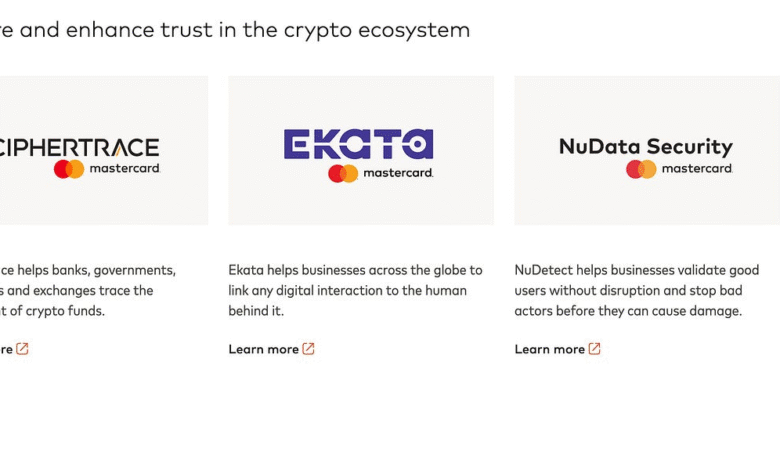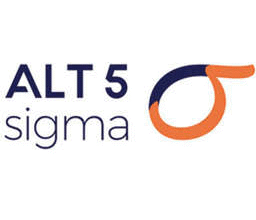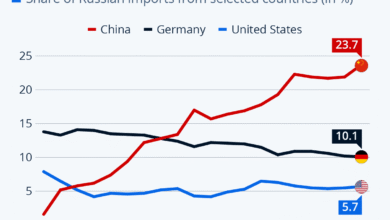Paxos Trust Bank License: A Game Changer for Crypto

The Paxos Trust Bank License represents a significant milestone in the evolving landscape of digital finance. As a leading cryptocurrency firm, Paxos Trust Company aims to secure a national trust bank charter from the U.S. Office of the Comptroller of the Currency (OCC), a move that could redefine its operational framework. By converting its New York limited-purpose trust charter into a federal trust bank license, Paxos would gain the capability to hold assets and facilitate payments in a regulated environment. This application aligns with the challenges and opportunities faced by crypto trust banks in the wake of stablecoin regulations and recent settlements with regulators. As the demand for reliable digital payment solutions grows, Paxos’s pursuit of a bank license showcases its commitment to compliance and stability in the cryptocurrency market.
Paxos is at the forefront of the financial revolution, with its application for a national charter from the OCC highlighting its strategic vision. This initiative marks an important step for the company as it seeks to establish itself within the regulatory framework governing digital assets. By transitioning to a federally chartered trust bank, Paxos hopes to enhance its services and streamline payment settlement processes, adapting to the increasing scrutiny in the realm of cryptocurrency. As companies like Circle and Ripple also vie for similar licenses, the discourse surrounding crypto regulations and trust banks is intensifying. Furthermore, this move comes on the heels of Paxos’s recent agreement to resolve prior regulatory issues, underlining the critical balance between innovation and compliance in today’s fintech landscape.
The Significance of the Paxos Trust Bank License
Obtaining a Paxos Trust Bank License from the Office of the Comptroller of the Currency (OCC) is a significant milestone not only for Paxos but also for the cryptocurrency industry as a whole. This license would allow Paxos to operate under a federal trust bank charter, providing a regulatory framework that supports the growing demands for secure digital asset management. With the increased adoption of cryptocurrencies, having a trust bank license will enable Paxos to offer services related to asset holding and payment settlements, thereby enhancing its credibility and reliability in financial transactions.
In addition to streamlining operations, the Paxos Trust Bank License could strengthen user trust in Paxos’ services, particularly its stablecoin, PYUSD. As regulatory scrutiny increases, companies like Paxos must comply with evolving stablecoin regulations that prioritize consumer protection and market integrity. This license would position Paxos as a key player in the digital asset space, aligning with other notable firms like Circle and Ripple which have sought similar charters, highlighting a trend towards legitimization of crypto trust banks.
Paxos and Its Role in Stablecoin Evolution
Paxos has been a pioneer in the cryptocurrency sector, and its pursuit of a trust bank license underscores the evolving nature of stablecoins in finance. The firm is already well-known for its stablecoin, PYUSD, issued for use on PayPal’s platform, which has significantly contributed to mainstream acceptance of cryptocurrencies. By operating under a federal trust charter, Paxos could further enhance the transparency and stability of its cryptocurrency offerings, reassuring users and investors amidst concerns about volatility and regulation.
As regulators tighten stablecoin regulations, firms like Paxos that proactively seek oversight through formal licensing are likely to gain a competitive edge. The stability offered by a trust bank charter can serve as a fundamental pillar in the trust framework surrounding cryptocurrencies, potentially improving the overall market environment. Furthermore, this could lead to increased institutional interest, as players in the financial sector recognize and support the legitimacy of fully regulated crypto platforms.
Navigating Trust Bank Charters: The Path Forward for Crypto Firms
The process of obtaining a trust bank charter from the OCC is rigorous and demands comprehensive compliance with regulatory standards. Paxos’ recent application illustrates a larger trend among cryptocurrency companies that are seeking to establish regulatory footholds in a rapidly changing landscape. Competing alongside firms such as Anchorage Digital is no small feat; however, obtaining this charter could enable Paxos to differentiate itself through enhanced operational capabilities and offerings in the crypto space.
The landscape for crypto trust banks is still developing, and successful applicants will likely set benchmarks for others to follow. As the OCC reviews Paxos’ application, it reflects not just on the internal workings of Paxos but on the broader implications for the entire cryptocurrency market in the U.S. With the increasing acceptance of digital assets, firms that navigate this path effectively can harness regulatory frameworks to scale their operations, innovate their services, and bolster consumer confidence.
The Impact of Past Regulatory Settlements on Future Applications
Paxos made headlines with its recent settlement of $48.5 million with New York regulators, a move that undoubtedly influenced its current application for a trust bank license. This settlement, which addressed past transactions involving Binance, exemplifies the scrutiny that cryptocurrency firms face from regulators. However, it also demonstrates the willingness of Paxos to rectify prior missteps, creating a foundation for sustainable growth and compliance moving forward.
Regulatory settlements can often be seen as a double-edged sword, especially in the crypto industry, where reputational risk is significant. For Paxos, resolving regulatory issues may not only strengthen its case for maintaining a trust bank charter but also instill greater confidence amongst its users and investors. In light of emerging stablecoin regulations, the firm’s proactive approach to compliance positions it favorably against its competitors as the market continues to transition towards a more regulated ecosystem.
Comparison with Other Crypto Trust Banks in the U.S.
As Paxos moves to obtain a trust bank license, it is essential to consider the competitive landscape of other cryptocurrency firms pursuing similar regulatory approvals. Currently, Anchorage Digital stands out as the only cryptocurrency company with a federal trust bank charter, serving as a precedent for others in the industry. The authorization allows Anchorage to safely and effectively manage digital assets on behalf of institutional clients, paving the way for lasting trust in similar undertakings by Paxos and others seeking the same recognition.
The trajectory of Paxos must be strategically compared to that of Anchorage and other companies like Circle and Ripple, all of which are navigating a complex regulatory environment. By obtaining a trust bank license, Paxos could potentially replicate successful elements of Anchorage’s business model, enabling it to extend its services while meeting strict compliance standards. The outcome of these applications will greatly shape the future landscape of crypto trust banks in the U.S., influencing how digital assets are integrated into mainstream finance.
The Future of Cryptocurrency Regulation in the U.S.
The growing interest in seeking trust bank charters by firms like Paxos is indicative of a maturing approach to cryptocurrency regulation in the United States. Regulatory bodies, including the OCC, are increasingly recognizing the need for a structured framework that can accommodate innovative financial technologies while ensuring consumer protection. As these regulations evolve, the role of cryptocurrencies in the traditional banking system is likely to expand, allowing for greater integration of digital assets into everyday financial transactions.
Paxos’ aspirations for a trust bank license could signal a shift towards a more stable environment, particularly for cryptocurrencies like stablecoins that aim to maintain value stability against fiat currencies. This regulatory reform is likely essential for fostering long-term trust and adoption among mainstream users. As the industry waits to see how regulatory bodies respond to these applications, firms that align themselves with compliance measures will be better poised for success in this dynamic market.
Regulatory Challenges and Opportunities for Paxos
While the application for a Paxos Trust Bank License is a strategic move towards legitimacy in the financial sector, it also comes with its own set of challenges. The regulatory landscape for cryptocurrencies is complex and ever-changing, with agencies closely scrutinizing firms for compliance with laws related to securities and anti-money laundering. Paxos will need to demonstrate its commitment to adhering to these regulations while also innovating and expanding its service offerings.
The ongoing dialogue surrounding stablecoin regulations presents both hurdles and opportunities for Paxos. Striking a balance between regulatory compliance and operational flexibility will be crucial for the firm to navigate this landscape successfully. Achieving a trust bank license could not only provide Paxos with a unique market advantage but also prepare it for future regulatory compliance that is likely to shape the broader cryptocurrency industry.
Implications of Paxos Settlement with Regulators
The $48.5 million settlement that Paxos reached with New York regulators is more than just a resolution to past issues; it has profound implications for its future endeavors, including the pursuit of a trust bank license. The resolution demonstrates that Paxos is willing to engage with regulators and rectify previous misunderstandings regarding its operational practices, which can strengthen its application process with the OCC.
Settlements like this can serve as pivotal turning points in a firm’s regulatory journey. For Paxos, aligning with ongoing stablecoin regulations while demonstrating accountability can enhance its profile in the eyes of regulators and potential customers alike. As the company moves forward, it must leverage this experience to build a robust compliance framework that not only adheres to current standards but also anticipates future regulatory changes.
The Role of Paxos in the Cryptocurrency Ecosystem
As a key player in the cryptocurrency space, Paxos operates at the intersection of traditional finance and digital innovation. The pursuit of acquiring a trust bank license is a reflection of its commitment to reshaping the financial landscape through secure and regulated cryptocurrency solutions. By bolstering its regulatory framework, Paxos hopes to promote trust among users while expanding its influence and footprint in the cryptocurrency market.
Paxos serves as a bridge, translating traditional financial principles into the modern world of cryptocurrencies. Its efforts to obtain a trust bank charter not only signify its ambition but also highlight its role in fostering broader acceptance and integration of digital assets throughout the financial ecosystem. As more consumers turn to cryptocurrency solutions, the significance of firms like Paxos will only continue to grow, potentially leading the way towards a robust, compliant digital financial environment.
Frequently Asked Questions
What is the Paxos Trust Bank License and why is it important?
The Paxos Trust Bank License refers to the national trust bank charter that Paxos Trust Company is seeking from the U.S. Office of the Comptroller of the Currency (OCC). This license is significant as it would allow Paxos to hold assets and facilitate payment settlements for cryptocurrency transactions, positioning it as a competitive player in the regulated digital asset space.
How does the OCC trust bank charter affect Paxos cryptocurrency operations?
Obtaining an OCC trust bank charter would enable Paxos to operate under federal oversight, enhancing its credibility and compliance within the cryptocurrency market. This would facilitate its ability to settle payments and manage digital assets effectively, although it would not allow Paxos to take deposits or issue loans.
What are the stablecoin regulations affecting Paxos Trust Bank License applications?
Stablecoin regulations impact Paxos Trust Bank License applications as they set forth guidelines on how stablecoins like PayPal’s PYUSD can be issued and regulated. Paxos’s application follows the establishment of stricter regulatory frameworks in the U.S., designed to ensure transparency and consumer protection in the stablecoin market.
Why did Paxos previously withdraw its application for a trust bank charter?
Paxos previously withdrew its trust bank charter application, which had gained preliminary approval in 2021, because it expired in 2023 without further action. This was likely influenced by the evolving regulatory landscape and the need to align with new stablecoin regulations introduced in the U.S.
Who are the other companies applying for trust bank licenses similar to Paxos?
Companies like Circle and Ripple are also seeking trust bank licenses from the OCC, similar to Paxos. These companies aim to secure regulatory compliance and enhance their operational capabilities within the cryptocurrency and digital asset markets.
What implications does Paxos’s settlement with New York regulators have for its bank charter application?
Paxos’s $48.5 million settlement with New York regulators regarding past transactions may impact its trust bank charter application by demonstrating a commitment to regulatory compliance. This could strengthen its case for the OCC trust bank charter as it showcases an effort to rectify past issues and adhere to new stablecoin regulations.
Is Anchorage Digital the only cryptocurrency firm with a trust bank charter?
Yes, currently, Anchorage Digital is the only cryptocurrency firm that holds a federal trust bank charter. This highlights the competitive landscape and regulatory challenges that other firms like Paxos face while pursuing similar licensing.
How would the approval of Paxos’s application change the landscape for crypto trust banks?
The approval of Paxos’s application for a trust bank charter would significantly impact the crypto trust bank landscape by legitimizing its operations under federal regulations and potentially encouraging more cryptocurrency firms to seek similar charters, thus fostering innovation and regulatory compliance in the digital asset industry.
| Key Points |
|---|
| Paxos Trust Company is seeking a US Trust Bank License from the OCC. |
| The license would convert their New York limited purpose trust charter into a federal one. |
| Approval would allow Paxos to hold assets and settle payments but not take deposits or issue loans. |
| Paxos joins other digital asset companies like Circle and Ripple in applying for trust bank licenses. |
| Paxos previously obtained preliminary approval for a license in 2021, which expired in 2023. |
| Currently, Anchorage Digital is the only cryptocurrency company with a bank charter. |
| The application follows Paxos’s $48.5 million settlement with New York regulators over past transactions with Binance. |
| New regulations for stablecoins in the U.S. are being introduced, influencing this licensing move. |
Summary
The pursuit of a Paxos Trust Bank License is a significant step for Paxos Trust Company, as it aims to strengthen its position within the cryptocurrency landscape while complying with evolving regulations. The potential conversion of its charter could enable Paxos to offer enhanced services in managing digital assets, marking an important development in the digital banking sector.




